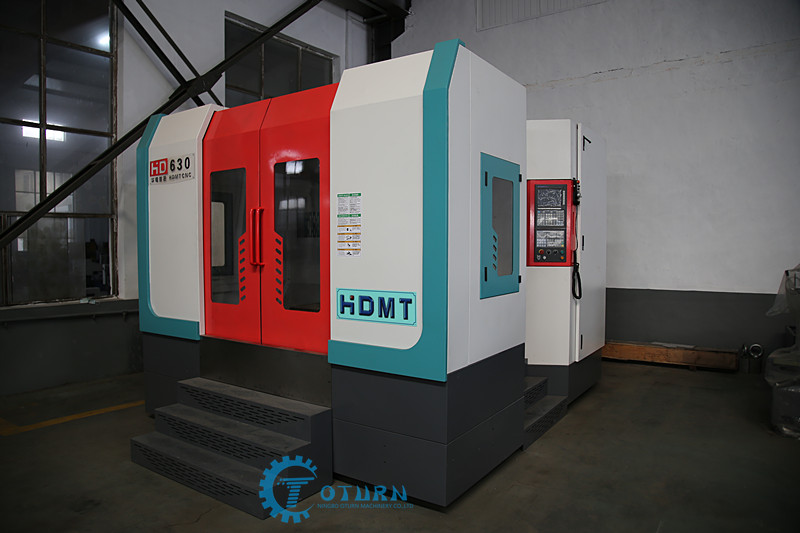As more and more companies use this technology, computer numerical control (CNC) machining is becoming more and more popular. Unsurprisingly, more and more companies continue to set up computer-controlled machines to produce high-precision products.
Simply put, CNC is to automate the control of processing tools such as 3D printers, drills, lathes, and milling machines through computers. The CNC machine processes a piece of material (plastic, metal, wood, ceramic, or composite material) to meet specifications by following the coded program instructions, without the need for a manual operator to directly control the processing operation.

For entrepreneurs who want to start a new business, investing in CNC machine tools provides exciting and lucrative business opportunities. As the needs of all walks of life continue to grow, you can invest in a CNC machine tool and start providing CNC machining services.
Of course, developing CNC business is not easy, because it requires considerable capital expenditure. You need to raise enough funds to buy these machines. You also need sufficient funds to cover administrative expenses, such as wages, electricity, and maintenance costs.
Like most other companies, to establish and succeed in a new CNC machine tool business, you need a solid plan that details how you will run all aspects of the business.
If you have a business plan, it can provide a clear path when running and developing your precision machining business. The plan will help you determine the key areas, needs, and strategies needed for success.
Knowledge about how CNC machining works is also necessary. Now, the restrictions on a given machine depend not only on the operator and the materials involved, but also on the machine itself. The new and improved design software combines the advantages of CNC.
By knowing and understanding everything about the target market, you will avoid trial and error when marketing and finding new customers. Knowing your target customers also allows you to easily price your products.
Usually, CNC machining business makes money by selling machined parts that require very tight dimensional tolerances and high surface finish. Prototypes may be sold as a single item, but most orders are usually placed for a large number of the same parts.
Some companies set hourly rates for running different types of CNC machines, such as $40 for a 3-axis milling machine. These costs have nothing to do with labor. Consider all production factors and find the right price for you.
After you have dealt with funding and pricing issues, be sure to come up with a suitable company name to reflect your business goals and vision, and also to attract your customers.
A business can be registered as a sole proprietorship, limited liability company or company to become a legal entity. Learn about each of these legal entities to determine which entity is best for you.
If your CNC machine tool business is sued for some reason, it is usually recommended to open a limited liability company to avoid liability.
Registering a business name can be free, or a small fee can be charged to the relevant agency. However, the registration procedure may vary depending on your region and type of business.
Once your business is registered as a limited liability company, partnership, corporation or non-profit organization, you also need to apply for a license and permit from the county or city before opening.
Failure to obtain the required license may result in huge fines or even shut down your CNC machine tool business. For example, check your state’s legal requirements for setting up a 3D printer and submit documents for the relevant permits and permits to operate the machine.
In addition, when you are fully registered, licensed, and operated, you will need to submit tax returns. Work hard to pay taxes to stay on the right side of the law and operate legally.
As is the case with most companies, it is strongly recommended to separate business funds from personal funds. You can do this by opening a dedicated business account, and you can even have a business credit card separate from your personal account.
Having a separate commercial bank account and credit card can protect your personal funds well in case your commercial account is frozen for some reason. Commercial credit cards can also help establish your commercial credit history, which is important for future borrowing.
You may also need to hire the services of an accounting expert to help you manage your account books and simplify your finances, especially when it comes to taxation.
Don’t forget to insure your business. It is important to insure your CNC machine tool business because it gives you peace of mind because it knows that you will be protected and guaranteed in the event of accidents, machine failures, unexpected loss of income and other risks that may occur in your business.
For example, the replacement or repair of CNC machines can be very expensive. But with the right insurance, you can not only pay for repairs, but also provide protection for your employees and corporate customers.
In this regard, general liability insurance and workers’ compensation insurance are two common types of insurance and are a good starting point for insuring your business.
Setting up a CNC machine tool business can be challenging, but if you set it up correctly and follow all necessary procedures (including insuring and paying taxes for your business), it is also completely worth it. Obtaining ISO 9001 certification can also go a long way in gaining more customers.
Post time: Jun-17-2021






